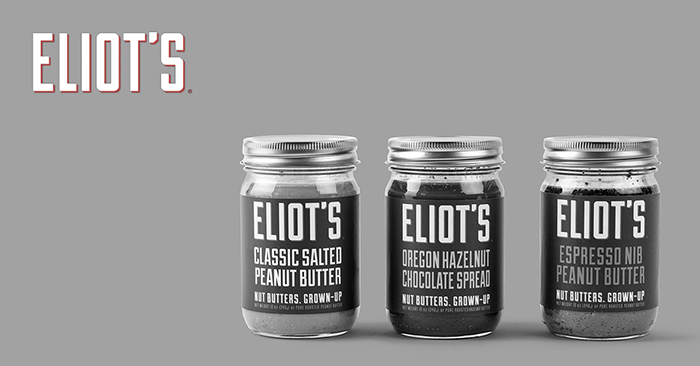Eliot’s Nut Butters Shuts Down

After nearly 10 years in business, premium nut butter maker Eliot’s is shutting down.
The Oregon-based startup, named for the Eliot neighborhood in Portland, announced on its website this month that it made its last production run in January and would continue to sell through its remaining inventory online and in store as it winds operations down.
Founded as Eliot’s Adult Nut Butters in 2013 by aspiring chef Michael Kanter, the brand marketed a variety of products with complex and unique flavor profiles, including Spicy Thai Peanut Butter, Honey Chipotle Peanut Butter and Pistachio Dates Almond Butter, among others. Kanter said the business sprouted from his own culinary curiosity after he created a homemade spicy nut butter on a whim, and shortly thereafter began selling the products at local craft shows in the Pacific Northwest.
“As we approach ten years of existence, it would be ideal to be planning a celebration of Eliot’s. Unfortunately Eliot’s Nut Butters will not be around to reach that milestone,” the company stated in an announcement to consumers. “As a small, scrappy nut butter company, we’ve done our best to build a sustainable business. We’ve encountered setbacks over the years and reached a juncture where continuing operations is no longer financially possible.”
Speaking to NOSH today, Kanter said the decision to shutdown Eliot’s comes despite the company having its strongest sales year to date in 2022 with over $400,000 in revenue. At the beginning of the year, the brand had three full time employees and was available in over 600 stores across 35 states, with its primary footprint on the West Coast in Oregon, Washington and California through accounts like Whole Foods, Kroger, Safeway, New Seasons and Market of Choice. The products were also sold online direct-to-consumer and through Amazon.
“I started Eliot’s with $5,000, it was just sort of an experiment to see how to learn and grow business,” he said. “So in many ways, it’s crazy that we made it nine-plus years, especially without any backers.”
But Eliot’s also faced a yearslong series of setbacks that ultimately proved to be insurmountable for the small company, which had been primarily funded through debt financing and never raised venture funding despite several opportunities over the years.
In January 2019, the company issued a recall for products produced at a Wisconsin-based co-packer the year before, after the manufacturer issued a broad recall due to potential listeria contamination. The ordeal cost Eliot’s over $50,000 – about 15% of its annual gross – after the owner “fled the country,” Kanter claimed. The recall also caused an equity investment deal the brand was finalizing to fall apart and the company underperformed its growth projections for the year due to inventory constraints.
In September 2020, the brand entered into an acquisition agreement with investment firm Verus International as part of its Verus Foods subsidiary. That deal was terminated five months later and, as of this month, Verus Foods’ website is now offline and its Twitter account was last updated in July 2022.
While those two events had a destabilizing effect on Eliot’s, it was a different co-packing issue late last year that led Kanter to the decision to close. The brand’s primary co-packer was seven weeks late with a November production run, forcing Eliot’s to temporarily shut off DTC sales and terminate purchase orders, Kanter said, costing the business an estimated $40,000. After getting a product shipment in January, the co-packer demanded early payment for that run and held up delivery of a separate order, he added.
“It just kind of put us in an operational bind,” Kanter said. “In a stronger capitalized position, it probably would have just been a minor setback, but it kind of all came together very quickly.”
As Eliot’s now looks to sell out its remaining inventory, Kanter said one of the hardest parts about going out of business, is the sense of personal disappointment from the brand’s fans, many of whom have encouraged him to find some way of keeping the business going – whether it’s by selling the IP and recipes, or by finding an angel investor to save the company.
At the moment, Kanter said he’s unsure what the future will look like and is open to any opportunities for himself or for the brand. While he said much of Eliot’s collapse was due to bad luck, it was also a valuable learning experience that he hopes to bring to new roles in the food industry.
“We just know we barely scratched the surface of the potential of the brand and the company,” he said. “Ultimately being undercapitalized forced us to focus on regional growth while seeing growth in other places.”
“I think sometimes companies disappear and, for other founders of brands, I think it’s helpful to remember that sometimes life just doesn’t work out,” he added. “Failure sucks, but I’m hopeful that good things are ahead. I know I only got here because of the help of tons of people and the community.”

















